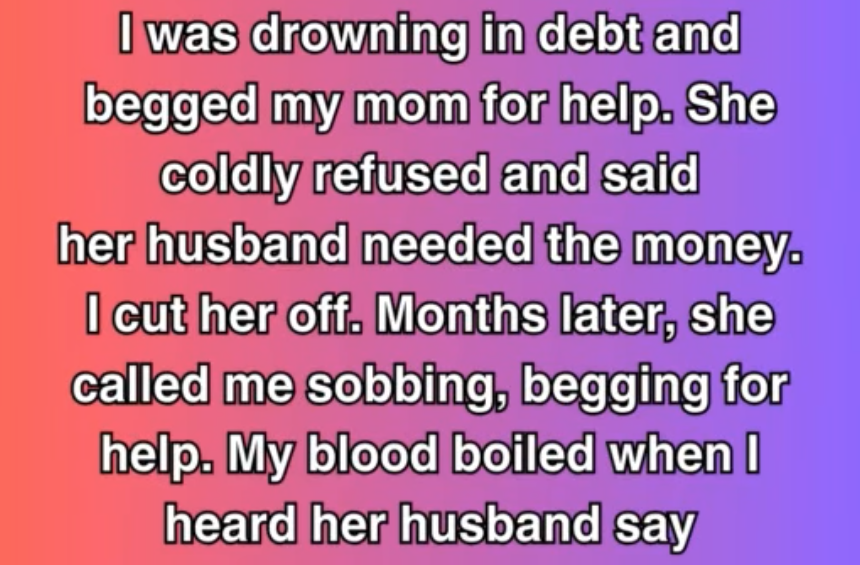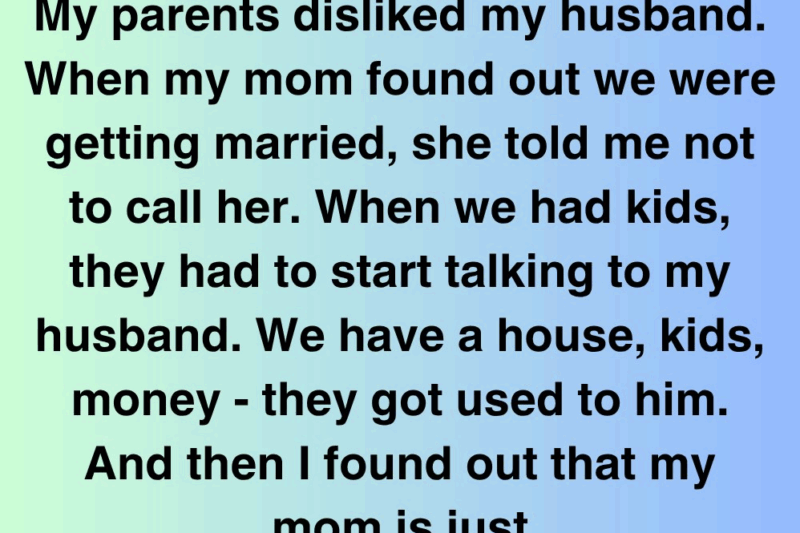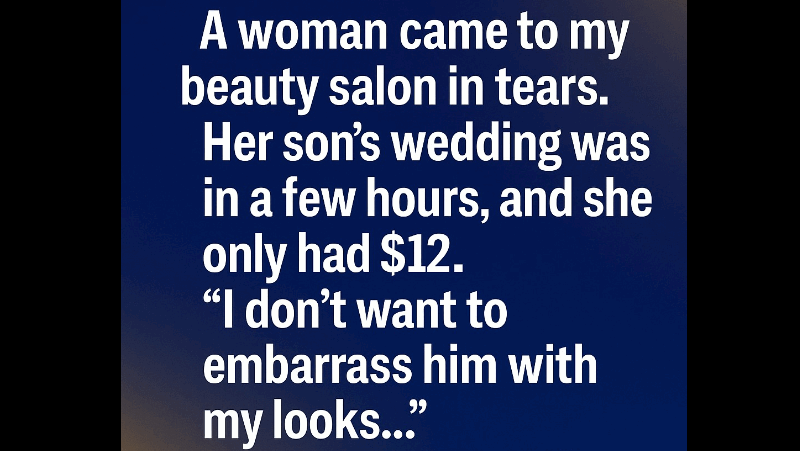Two years ago, my world tilted when my freelance work evaporated. Writing, graphic design, consulting—these were my lifelines, patched together to build a life I called my own. But clients vanished, payments stalled, and I found myself sinking under the weight of rent, insurance, and student loans. I wasn’t extravagant, but the numbers weren’t adding up. Swallowing my pride, I dialed my mom’s number, hands shaking after a day of hesitation.
She answered on the second ring.
“Mom, I’m struggling,” I said, voice low. “I need help with rent this month. Please.”
Silence hung heavy, then a throat cleared. “Farid’s business took a hit in the downturn,” she said. “He’s rebuilding. We don’t have anything to spare.”
I waited for warmth, for some flicker of concern. None came. She didn’t ask if I had food, if I was okay. It stung, not because it was new, but because it wasn’t. Farid, her husband since I was twenty-two, always came first. He was all charm and big promises—money moves “if you’re clever.” She bought into his dreams, calling him her fresh start. I never did.
That call ended with my heart lodged in my throat. Something broke inside me. I stopped reaching out—no cards, no texts, no calls. If she chose him, she could live with it.
Months passed. I clawed my way back—landed a contract job, took in a roommate. It wasn’t perfect, but it was survival. Food on the table, lights on, a sliver of calm.
Then, at 8:32 a.m., my phone buzzed while I brushed my teeth. It was her, sobbing, voice raw. “I need help,” she said. “I didn’t know who else to call.”
In the background, Farid’s voice sliced through: “Tell her we’ll sell the car if she sends money this week.”
My hand tightened around the phone. I hung up without a word.
Her texts flooded in over the next few days—apologies, explanations, details I hadn’t asked for. Farid’s ventures—crypto, auto parts, a startup in Malaysia—had crumbled. Their mortgage was in arrears. I left her messages unanswered.
A week later, a voicemail: “Baby, we’re losing the house. I know I failed you. I was scared, leaned on the wrong person. Please, let me make it right. I miss you.”
Anger, guilt, and something sharper swirled in me. I didn’t reply.
Curiosity pulled me in, though. I called my cousin Laleh, who lived near them. She spilled the truth: Farid wasn’t unlucky—he was careless. A secret second mortgage, maxed-out credit cards, a failed business loan in my mom’s name. She only learned when a repo man came for her Camry. “He sold her on an empire,” Laleh said. “She thought he was protecting them.”
It hurt to hear. She’d never believed in my hustle like she did his fantasies. I tried to let it go, told myself she chose her path.
A month later, her name lit up my phone again. I let it ring. Then a handwritten letter arrived. She was living in a friend’s basement. Farid had left, unable to handle a woman who didn’t back his “vision.” She wrote, “I don’t expect forgiveness. But I’d love to hear your voice, even if it’s to tell me I messed up.”
I stared at those words for hours.
That weekend, I called her. We talked for three hours, tears on both sides. She admitted everything—how Farid controlled the money, lied about accounts, called me “too needy” when I asked for help. She saw now how she’d chased security over being there for me.
She didn’t ask for money, only to meet. So I drove to the coast. She looked worn, thinner, but real. We sat on a park bench, eating sandwiches, feeling like strangers rediscovering a thread of connection.
Then she said, “I saw a therapist. I needed to know I wasn’t crazy. I let myself vanish into his dreams. But I want my own life now, even if it’s modest.”
I offered to buy her groceries. She declined, firm but kind. “I need to stand on my own,” she said. “But thank you.”
We kept talking over months. It wasn’t smooth—years of hurt don’t dissolve in a few calls. But the resentment softened. She got a job at a flower shop, rented Laleh’s upstairs studio, sent me a photo of her first paycheck in fifteen years. “Bought a blender,” she texted. “Smoothies and fresh starts.”
One day, she mentioned running into Farid at a gas station. “He asked me to co-sign a lease for his new venture,” she said, voice flat. I laughed until I snorted. She didn’t sign.
Then, a twist: a $2,000 money order from Farid arrived, with a note: “I heard you helped her. This is me trying to balance things.” I haven’t cashed it. It sits in my drawer, a strange paper apology. I texted my mom a photo of it. She replied, “Do what feels right. But don’t let him buy your grace.”
That landed deep. She was starting to understand.
Now, over a year later, she lives in that studio, grows herbs in coffee cans, takes long walks. Solitude doesn’t scare her anymore. We talk weekly, not from duty, but because we want to. She’s proud of me—not for fame or wealth, but for standing firm when she didn’t. She says watching me rise helped her believe she could, too.
I once read, “Sometimes the person you needed to save ends up saving you in return.” That resonates. If someone’s let you down, I’m not saying rush to forgive. But people can grow if they face their truths. And if they do, maybe your story finds a path beyond silence—not flawless, but stronger.
If this story touched you, share it or leave a like. It might help someone else find their way.




